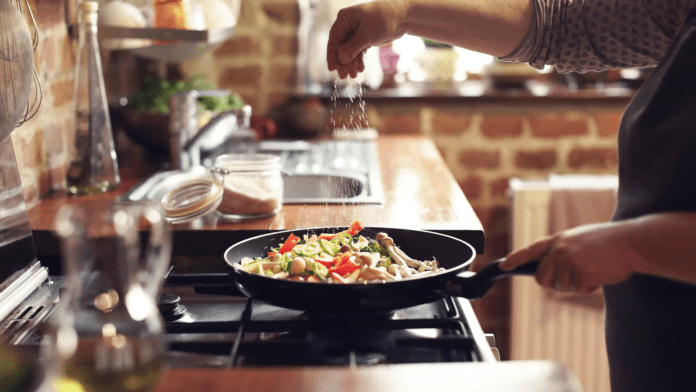We all know that cooking is an essential part of preparing our meals. It enhances the flavors, makes food safer to consume, and even helps to break down certain toxins and anti-nutrients. However, there are some everyday foods that may turn toxic when cooked or overcooked. In this article, we will explore the dangers of overcooking and highlight five common foods that could be slowly poisoning you.
Is Overcooked Food Healthy For You?
The concept of overcooking refers to the process of subjecting food to excessive heat for an extended period. While it may seem harmless, overcooking can lead to the loss of essential nutrients and the formation of harmful compounds. Overcooked food can be detrimental to your health due to the destruction of vitamins, enzymes, and other heat-sensitive compounds.
Why You Should Not Overcook Certain Foods?
Certain foods are more susceptible to nutrient loss and the formation of toxic compounds when overcooked. The excessive heat can break down the nutritional value of these foods, resulting in a significant decrease in their health benefits. Moreover, the formation of harmful compounds can have adverse effects on the body, leading to long-term health issues.
Why Certain Foods Are Best Eaten Raw?
Raw foods have been a part of human diets for centuries, and for a good reason. They provide a wide array of vitamins, minerals, and enzymes that can be easily destroyed by cooking. While cooking can sometimes enhance the bioavailability of certain nutrients, it can also cause significant nutrient loss. Consuming certain foods raw ensures that you get the maximum nutritional benefits without the risk of harmful compounds.
Foods That May Turn Toxic When Cooked Or Overcooked
- Broccoli
Broccoli is a popular vegetable known for its high nutritional value. However, overcooking broccoli can lead to the destruction of its health-promoting compounds, such as vitamin C, folate, and glucosinolates. These compounds are believed to have anti-cancer properties and are essential for maintaining overall health. Overcooking broccoli can result in a mushy texture and a bitter taste, indicating the loss of its nutritional value.
- Honey
Honey is a natural sweetener that offers numerous health benefits. However, when heated above a certain temperature, honey can undergo a process called the Maillard reaction, which leads to the formation of harmful compounds. Heating honey can result in the production of hydroxymethylfurfural (HMF), which has been linked to potential negative effects on human health. To preserve the beneficial enzymes and antioxidants present in honey, it is best consumed in its raw form or added to warm, not hot, foods and beverages.
- Bell Peppers
Bell peppers are a colorful and nutritious addition to many dishes. However, when overcooked, bell peppers can lose their vibrant color, texture, and nutritional value. Overcooking breaks down the antioxidants present in bell peppers, such as vitamin C, resulting in a decrease in their health benefits. It is best to lightly cook or even consume bell peppers raw to retain their nutritional value and vibrant flavor.
- Beetroot
Beetroot is a popular root vegetable known for its rich color and nutritional content. However, overcooking beetroot can cause the loss of important nutrients, such as vitamin C, folate, and betalains. Betalains are pigments responsible for beetroot’s vibrant color and have been associated with antioxidant and anti-inflammatory properties. To maximize the health benefits of beetroot, it is best to lightly steam or roast it rather than subjecting it to prolonged cooking.
- Almonds
Almonds are a nutritious and versatile nut commonly consumed as a snack or used in various dishes. However, when almonds are overcooked or roasted at high temperatures, the healthy fats they contain can become rancid, leading to the formation of harmful compounds. Over-roasted almonds can also lose their natural crunch and develop a bitter taste. It is advisable to lightly toast almonds at a low temperature to preserve their nutritional value and flavor.
Final Thoughts:
By understanding the dangers of overcooking and making slight adjustments to your cooking methods, you can ensure that you derive the maximum nutritional benefits from these foods while avoiding the potential risks. Remember, moderation and proper cooking techniques are key to maintaining a healthy diet and enjoying the full range of flavors and nutrients that food has to offer.





